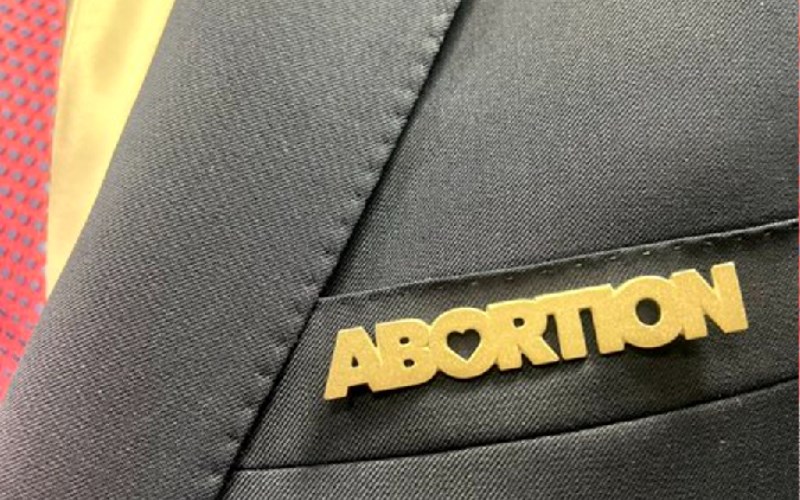Tuesday's defeat of Issue 1 by Ohio voters comes just nine months after Michigan voters made legal abortion a part of their state constitution with close to 55% of ballots cast.
Issue 1 – an effort to raise the threshold for which the Ohio constitution can be changed from a simple majority to 60% – did not specifically mention abortion. Abortion, however, was the contested point. A successful petition drive had already earned a pro-abortion measure on the November ballot. With Issue 1 now out of the way, abortion will become law with a simple majority.
Blaze TV show host Steve Deace acknowledges the Dobbs decision was huge – but the pro-life movement hasn't responded to the changing battleground, he said on American Family Radio Thursday.
 "So, in about five or ten years we did what the previous 40 years did not do: we created the legal dynamic and precedent, the ecosystem that led to the overturning of Roe. [But] now we're in another trap on our side," he explained.
"So, in about five or ten years we did what the previous 40 years did not do: we created the legal dynamic and precedent, the ecosystem that led to the overturning of Roe. [But] now we're in another trap on our side," he explained.
"So much money was raised nationally [and] so much messaging was about vote Republican for good judges to overturn Roe v. Wade, that now that the dog has caught the ambulance here, no one knows what to do," Deace told show host Jenna Ellis.
Michigan wasn't the only pro-abortion vote last fall. California and Vermont advanced measures, predictably, but so did Kentucky.
"This is not something that's just affecting Ohio. This is a national strategy," Brent Keilen, vice president of FRC Action, said on Washington Watch the day after Issue 1's defeat.
Two key takeaways from Ohio's Issue 1
Keilen gave show host Jody Hice two important takeaways from the disappointing setback in Ohio.
First, it's hard to pass constitutional amendments in most states. In recent years, five similar efforts have failed four times, he said.
Second, because of the ballot language for Issue 1, the outcome is not necessarily a reflection of voters' position on abortion. He pointed out there may be a number of voters who simply didn't have the stomach to say that all ballot initiatives needed a 60% threshold for success.

"What we were looking at Tuesday was an increase in the threshold for the constitution on any issue, so you could have Ohio voters who maybe take the pro-parent, pro-life position who say, 'When I look at all the issues, I actually think the threshold is good at 50%, and I'll just vote my position come November.' That may or may not be the case, but we have to remember this is not necessarily the case for where people stand on the vote in November," Keilen said.
The key as Ohio pro-lifers try to rebound, he added, will be getting out the message.
The Statehouse News Bureau reported Issue 1 proponents took in $4.8 million from outside sources – far less than outside money raised by opponents – but spent only about a third of its available funds.
"The outcome is still very much up for grabs," Keilen argued. "This is not something where this is set; it's going to come down to who gets their message out, [and] there are still a couple of months to do it."
And for Ohioans who accept the possibility that this week's vote does indicate people's position on the November vote? "That means you've got a couple of months to swing 7% of the vote," Keilen stated.
Pro-life message needs to include 5th Amendment
Indeed, many elections turn on message and getting out the vote. But advocates for life need to work on what message they're trying to communicate, said Deace.

"I've never understood for decades why we never argued the premise of our argument," he told the radio audience. "What is a life and when does life begin? Instead, we argued the premise of their argument. Well, when does the fetus feel pain? When is it fully developed? Those are Malthusian ethics. Those are utilitarian ethics. That's the premise of their argument."
Deace suggested the pro-life message should focus on the Fifth Amendment, which states no person shall be deprived of life, liberty or property without due process of law.
"Go back to the '72 Supreme Court hearing originally with NARAL [National Abortion Rights Action League] admitting to [Justice] Byron White … that if the state determined that a fetus was a person under the Constitution, it would be very difficult to make their case," Deace offered.
He also suggested conservatives need to be more prepared to respond to the changing landscape of the abortion discussion. "Heartbeat bills" – which ban abortion once a fetal heartbeat is detected and have been passed in a number of states, including Deace's home state of Iowa – are a good start, he said.
"When you actually challenge the premise of the other side's argument, you have a much greater chance of winning your own," he said. Ellis, an attorney, concurred.







